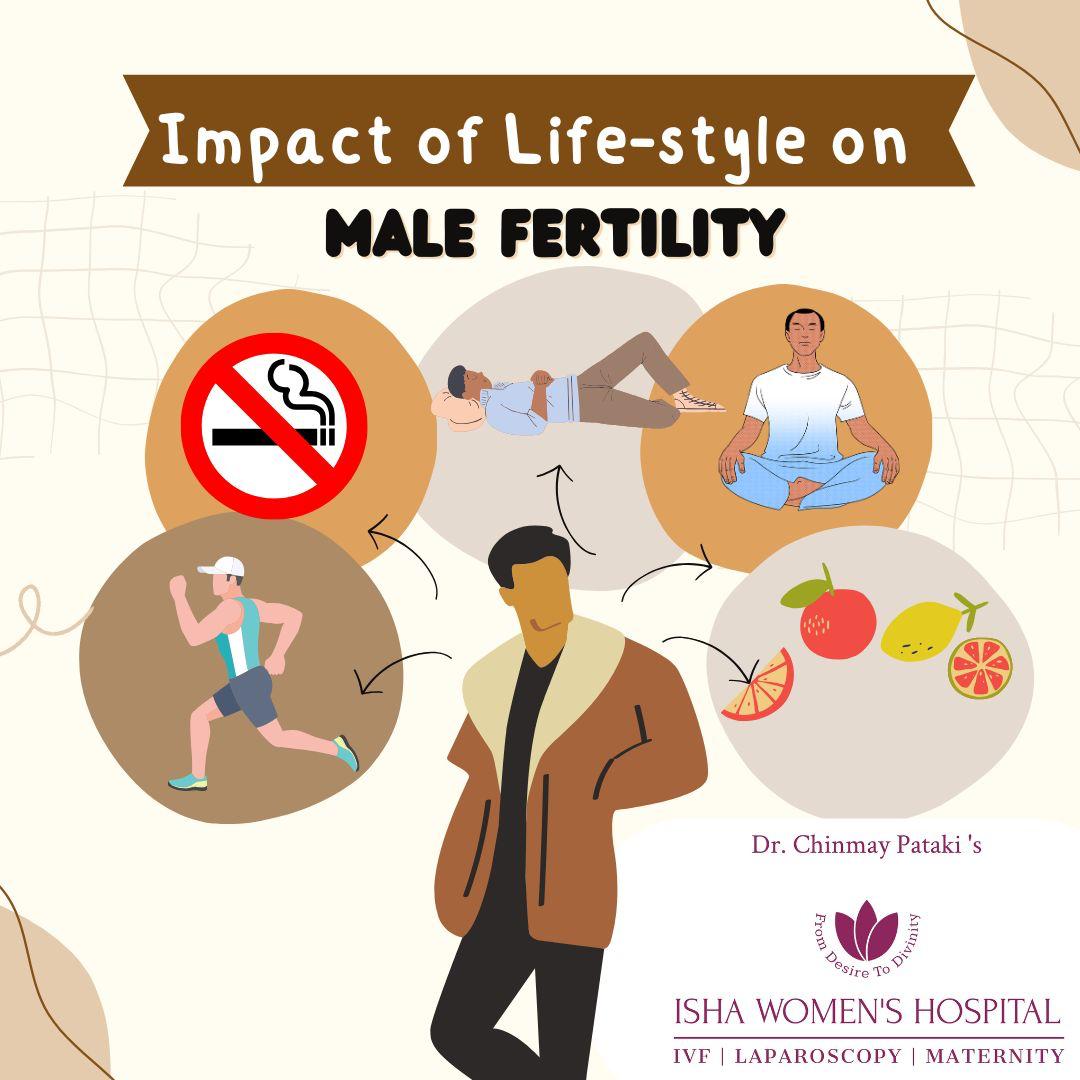Impact of Lifestyle Factors on Male Fertility

Understanding the impact of these habits and making small, mindful adjustments can be key to supporting fertility naturally. At Isha Women’s Hospital, the best IVF and fertility center in Thane, Dr Chinmay Pataki, one of the top male infertility and IVF specialists, provides expert guidance on how lifestyle
How do Lifestyle Choices affect Male Fertility?
Maintaining a Healthy Weight
Managing Stress for Hormonal Health
Role of Quality Sleep
Reducing Exposure to Environmental Toxins
Avoiding Smoking and Excessive Alcohol
By making mindful lifestyle choices, men can positively impact their reproductive health and overall well-being. A balanced approach to diet, exercise, stress management, sleep, and toxin exposure can lead to better outcomes for male fertility.
Recommendations
- Enhance Diet with Antioxidants and Omega-3s: Include Vitamin C, Vitamin E, and Omega-3 fatty acids in your diet to protect sperm cells from oxidative stress and improve overall sperm quality.
- Engage in Moderate Exercise Daily: Aim for 30 minutes of moderate physical activity, such as brisk walking or cycling, to improve blood circulation and reduce stress—both of which positively influence sperm health.
- Adopt Stress-Relieving Techniques: Practice mindfulness, meditation, and regular exercise to reduce stress, which is essential for creating a supportive environment for fertility.
- Prioritize Quality Sleep: Aim for 7-8 hours of uninterrupted sleep each night. Keeping a consistent sleep schedule and reducing screen time before bed can improve sleep quality and indirectly support fertility.
- Avoid Harmful Habits: Men planning to conceive should quit smoking and limit alcohol consumption to moderate levels to protect sperm health and enhance reproductive outcomes.
Frequently Asked Questions (FAQs)
Answer: Lifestyle plays a significant role in male reproductive health. Habits such as smoking, excessive alcohol, poor diet, lack of exercise, and chronic stress can reduce sperm count, motility, and morphology—leading to lower fertility potential.
2. Does smoking affect sperm health?
Answer: Yes. Smoking introduces harmful toxins that damage sperm DNA, reduce sperm count, and impair motility. It also affects hormone levels and increases the risk of erectile dysfunction. Quitting smoking can significantly improve semen quality.
3. Can obesity impact male fertility?
Answer: Obesity can lead to hormonal imbalances, lower testosterone levels, and increased scrotal temperature—all of which negatively affect sperm production. Weight loss through healthy diet and exercise can improve both fertility and overall health.
4. What role does stress play in male fertility?
Answer: Chronic stress disrupts the body’s hormonal balance, including testosterone production, which can interfere with sperm production and sexual function. Managing stress through sleep, physical activity, and mindfulness can help restore fertility.
5. How can men improve fertility through lifestyle changes?
Answer:
To enhance fertility, men should:
- Eat a balanced diet rich in antioxidants (e.g., vitamins C & E, zinc, selenium)
- Exercise regularly but avoid excessive heat (like hot tubs or saunas)
- Avoid smoking, alcohol, and recreational drugs
- Maintain a healthy weight
- Manage stress and get enough sleep
At Isha Women’s Hospital, we offer male fertility assessments and personalized guidance to improve reproductive outcomes.
Conclusion
Ready to take the next step in your fertility journey? Contact Isha Women’s Hospital today to schedule a consultation with Dr. Chinmay Pataki and get the best fertility care and a successful conception.
